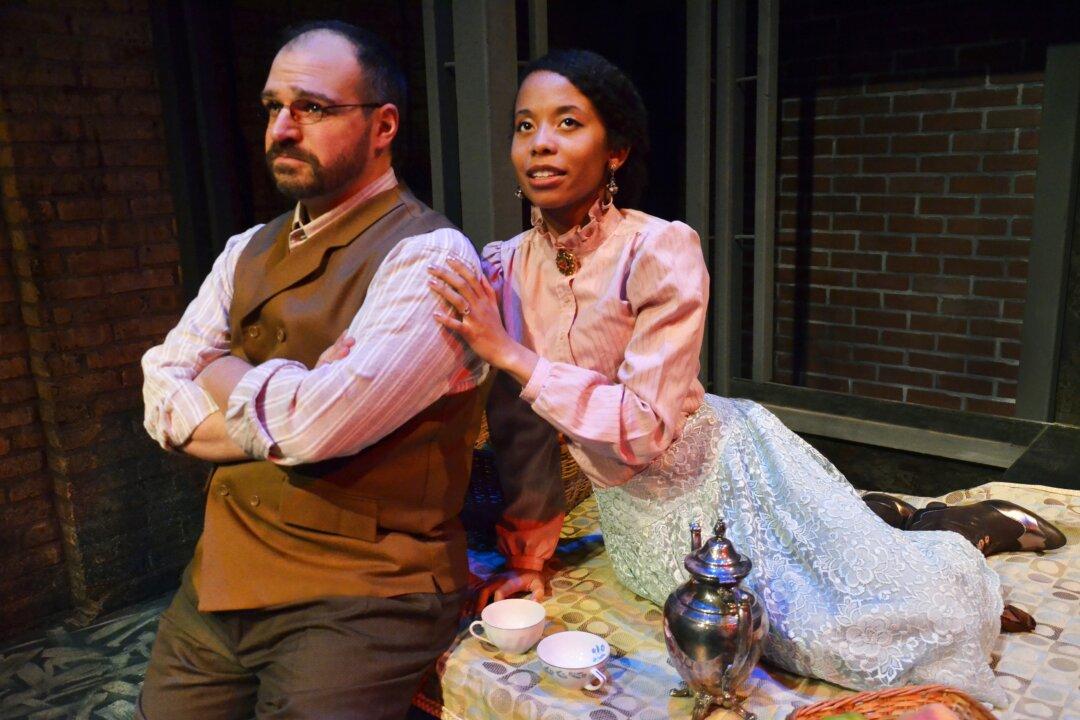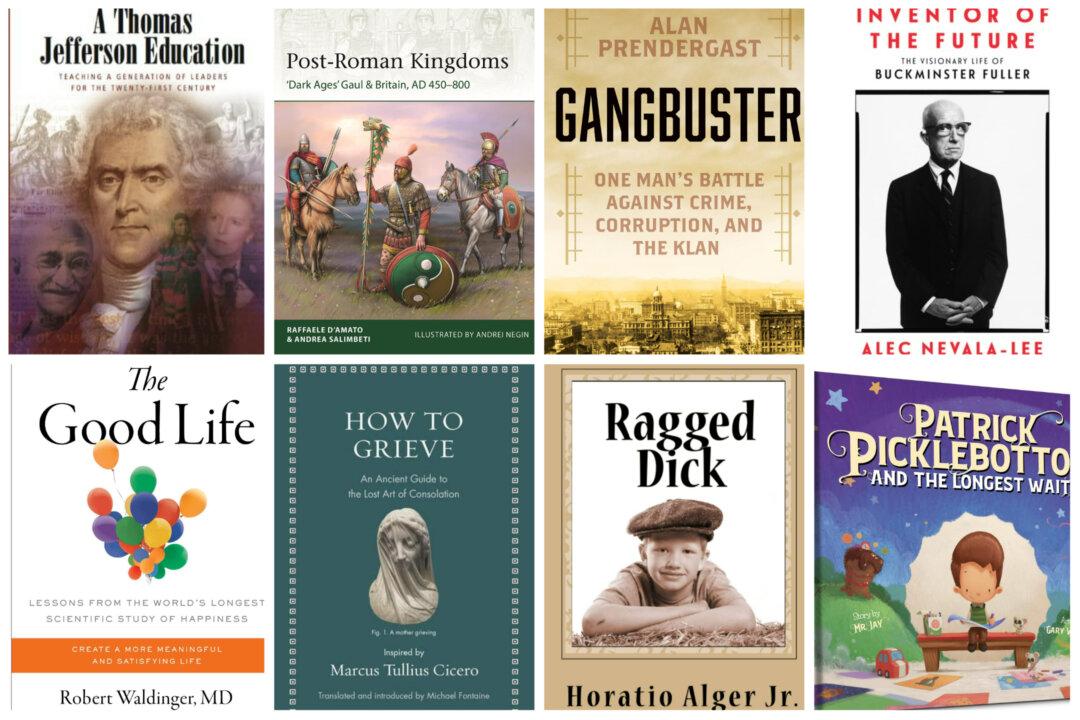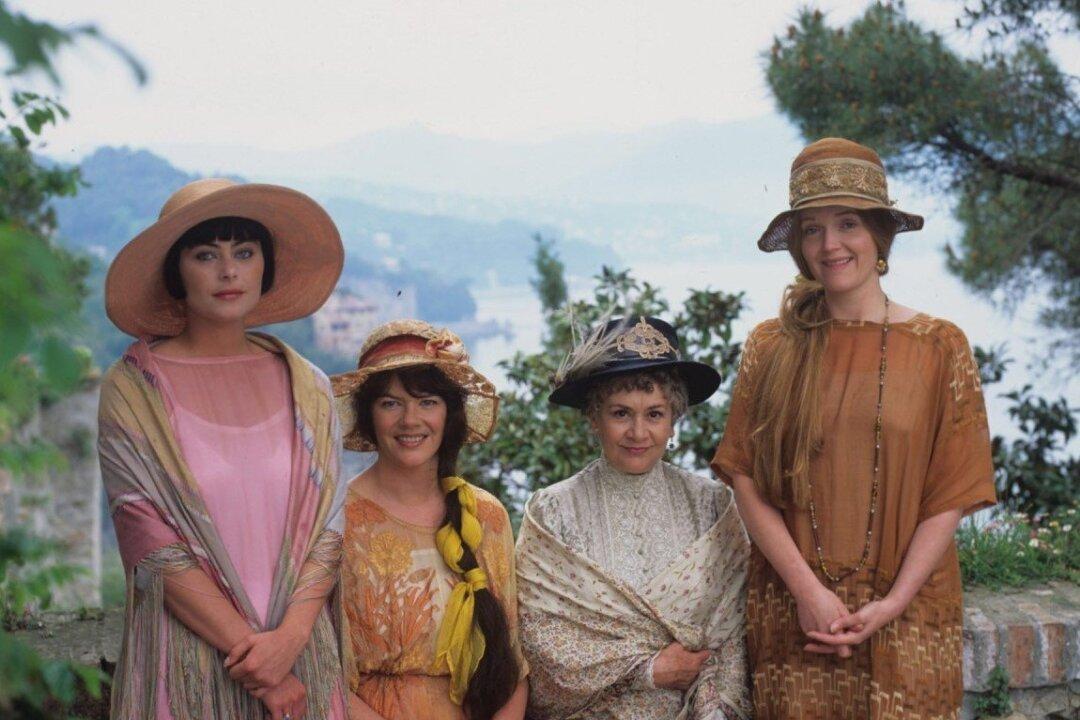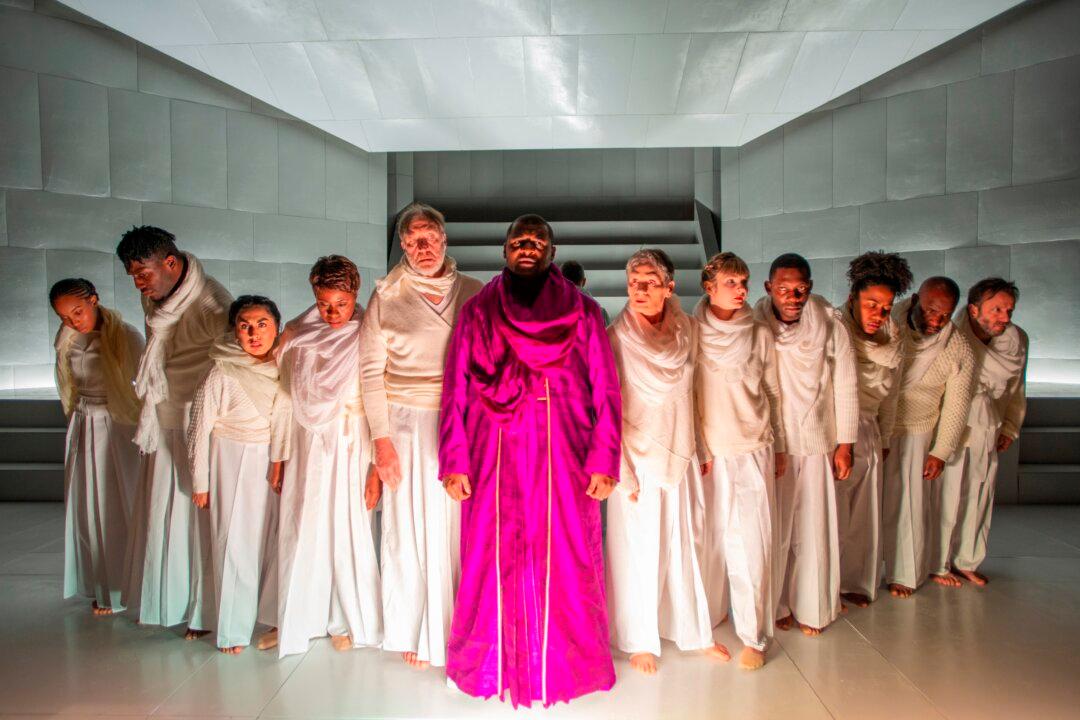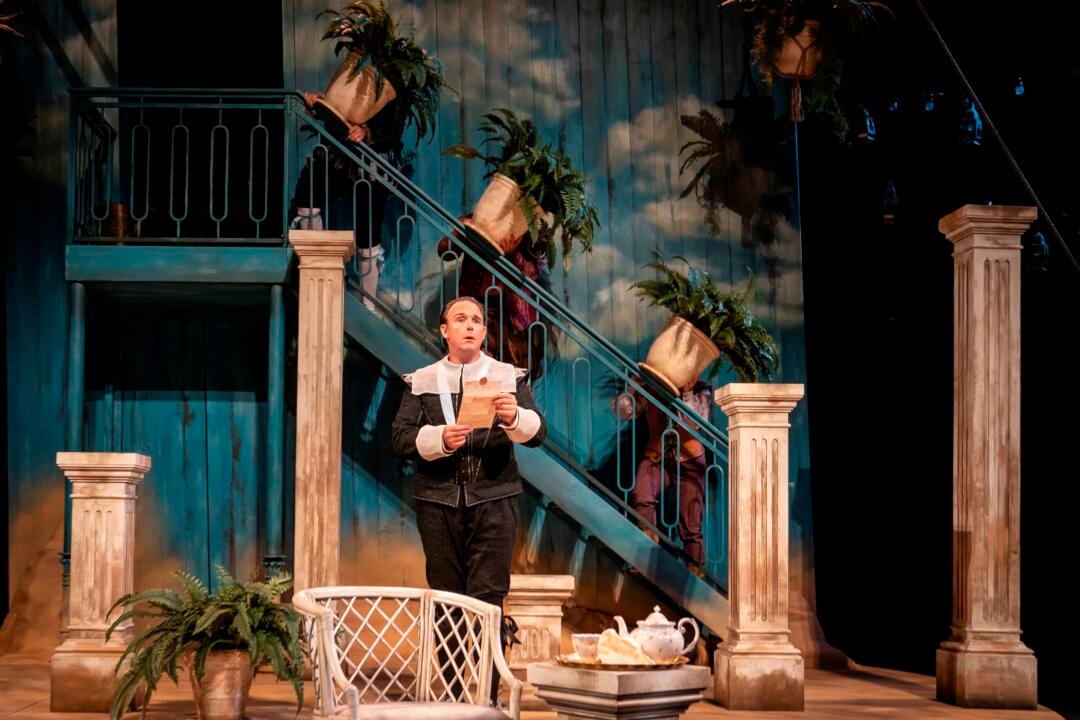CHICAGO—Missing are the glittering ballrooms, lavish costumes, and the panoramic views of huge estates that create the 19th-century Russia we are used to seeing on film. Instead, Jessica Wright Buha’s world-premiere adaptation of Leo Tolstoy’s “Anna Karenina” focuses on the characters and their thirst for happiness. And whatever the adaptation lacks in poetry and scope, director Amanda Link more than compensates for with visual touches and brilliant, resonating stage work.
Tolstoy’s solution for happiness is revealed in two main plots. The first involves Levin (Dan Granata), a philosophic landowner in love with Kitty (Brandi Lee), who at the start of the story has eyes for the dashing Count Vronsky (Eric Gerard).

